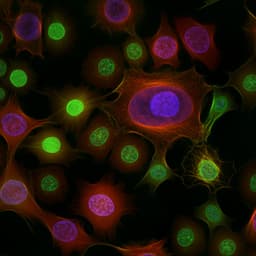
Medicine and Health
Baseline ctDNA gene alterations as a biomarker of survival after panitumumab and chemotherapy in metastatic colorectal cancer
K. Shitara, K. Muro, et al.
In the exciting Phase 3 PARADIGM trial involving 733 participants, researchers investigated how circulating tumor DNA (ctDNA) gene alterations impact treatment outcomes in RAS wild-type metastatic colorectal cancer. Discover whether first-line therapy using panitumumab could provide longer survival rates for patients without ctDNA alterations, as highlighted by the team of experts led by Kohei Shitara and Kei Muro.
Related Publications
Explore these studies to deepen your understanding of the subject.







